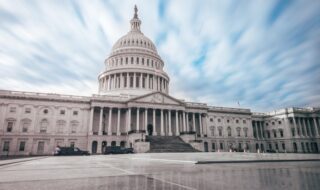October 13, 2022
State Regulators Side with NFIB MN On Xcel EV Subsidies
Earlier this month, the Minnesota Public Utilities Commission (MPUC) rejected an attempt by Xcel Energy to fast track its $400 million electric vehicle subsidy proposal.
NFIB Minnesota filed a letter with MPUC in August objecting to Xcel’s plan to sneak the subsidy package into an existing electric rate case. We had three main concerns:
· Small businesses and hardworking families should not be forced to subsidize electric vehicle handouts in the form of higher energy bills.
· Xcel’s rates have skyrocketed over the last two decades. The utility was already asking for a 20% rate increase over three years, and the $400 million EV plan would have represented a substantial increase on top of that.
· Xcel is a state regulated monopoly that shouldn’t be using its power to dominate the competitive refueling market. If Xcel wants to enter a competitive market, they can create an unregulated subsidiary and raise private capital – not use their monopoly to tax their captive customers for absurd schemes.
NFIB’s concerns were echoed by commissioners and other parties to the hearing.
Concerningly, at least one MPUC commissioner expressed sympathy with Xcel’s proposal. During discussion, that commissioner said he’s “not opposed to utility ownership” in the charging market and suggested the commission “let the monopoly work where the monopoly is addressing a market failure”
The commissioner added: “As someone who has an EV, there’s not a lot of fast charging opportunities… there’s certainly the Tesla supercharger network but if you don’t have a Tesla you’re still kind of out there in a sea, adrift…”
This is troubling language. There is no “market failure” and government-regulated electric monopolies exist to provide reliable, affordable electric service, not to do the bidding of politically appointed regulators. It’s not the government’s job to will a market into existence with taxpayer dollars, especially when real experience shows low consumer demand.
There are fewer than 17,000 all-electric passenger cars and trucks in Minnesota. That’s less than 2% of all passenger cars and trucks despite a decade of federal subsidies for EV ownership. And the overwhelming majority of charging is done at night at home, not because there aren’t chargers but because it’s less expensive and more practical for the EV owner.
Moreover, the commissioner’s comment about Tesla’s private fast charging network is a perfect example of why utility customers and taxpayers shouldn’t be forced to foot the bill. Let electric vehicle manufacturers price a charging network into the vehicle’s sticker price or assess electric vehicle registrations for the cost of a public-private network.
Ultimately, the MPUC sent Xcel’s petition to a contested case at the Minnesota Office of Administrative Hearings (OAH). This is a more rigorous process and means a state Administrative Law Judge will hear arguments from Xcel, opposition groups, and other parties about the proposal.
While this move is a victory for small business, we will need to continue the fight for more affordable energy and sane public policy at OAH.
NFIB is a member-driven organization advocating on behalf of small and independent businesses nationwide.
Related Articles














